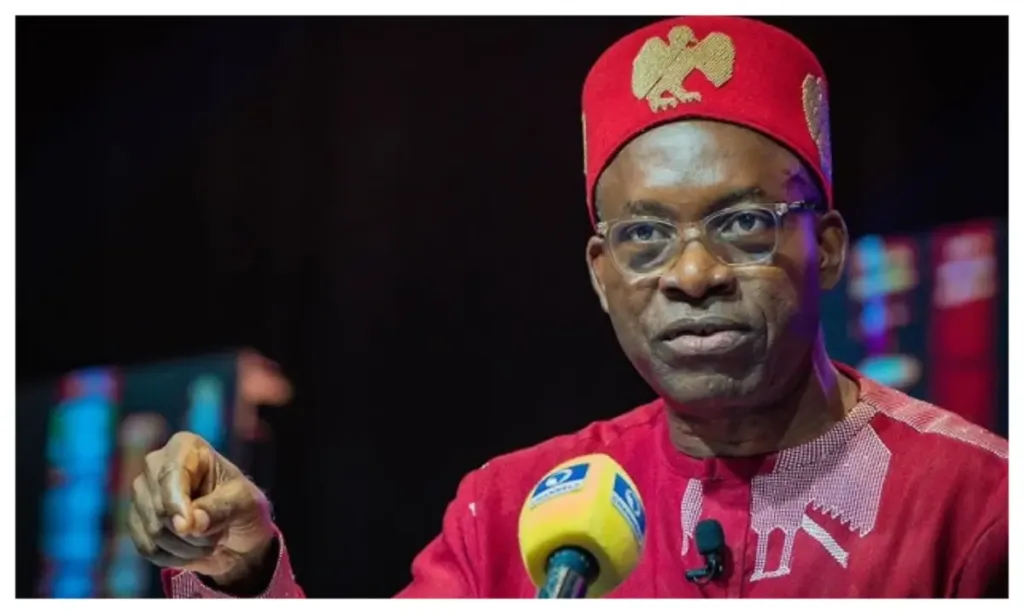Anambra State Governor Charles Chukwuma Soludo issued a sharp rebuke of political opponents during a rally organized by his All Progressives Grand Alliance (APGA) party, framing his second-term bid as a defense of the state’s legacy against what he called “charlatans” and “street urchins.” Addressing supporters at Ekwulobia Urban Stadium in Aguata Local Government Area, Soludo invoked Anambra’s storied history—name-checking iconic figures like nationalist leader Nnamdi Azikiwe, literary giant Chinua Achebe, and former Biafran leader Chukwuemeka Odumegwu Ojukwu—to argue that the state deserves leadership reflective of its intellectual and political heritage.
“This is a state that produced global legends. It is too big for impostors,” Soludo declared, criticizing rival candidates as “unserious” individuals seeking office for personal gain. He singled out aspirants pledging single-term tenures, suggesting such promises undermine Anambra’s rotational governance system—a political arrangement designed to ensure equitable power distribution across the state’s three senatorial zones. “Anyone vowing to serve just one term needs psychiatric evaluation,” he asserted, questioning why a candidate would limit their tenure when Nigeria’s constitution permits eight years.
The governor, who has not yet formally launched his re-election campaign, emphasized that the rally was entirely funded by grassroots APGA members. He framed their backing as evidence of public confidence in his first-term policies, which he claims have prioritized infrastructure, education, and economic revitalization. Attendees included traditional leaders from Anambra South, who bestowed Soludo with the ceremonial title “Olu Atu Egwu” (The One Who Takes Away Fear), previously awarded to him by the state’s central and northern zones. APGA stakeholders in the region also donated ₦100 million (approximately $67,000) to support his candidacy.
While dismissing opponents as opportunists “extorting funds through hollow campaigns,” Soludo positioned himself as a steward of continuity, stressing that Anambra’s electorate—already “politically aware”—would not tolerate disruptions to its governance norms. The remarks underscore deepening political tensions in the state, where debates over zoning protocols and leadership qualifications remain central to election cycles. Analysts note that Soludo’s alignment with Anambra’s rotational tradition could resonate in a region where power-sharing agreements are often viewed as vital to stability.
The rally’s规模庞大 turnout serves as an early signal of APGA’s mobilization efforts ahead of the 2025 governorship election. Yet the governor’s combative rhetoric raises questions about how his administration will navigate a political landscape increasingly marked by rivalry and calls for accountability. For now, Soludo remains focused on leveraging his incumbency and historical appeals, telling supporters, “Our people cannot be deceived by those who lack vision for Anambra’s greatness.”



